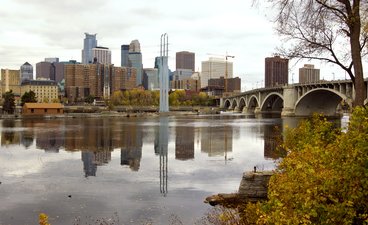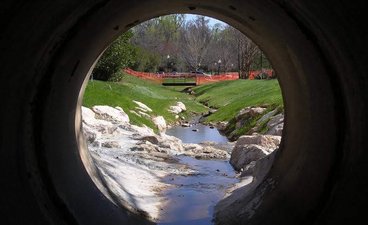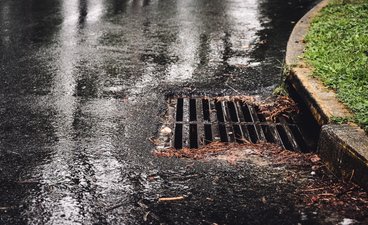The Minnesota Stormwater Seminar Series provides an opportunity to learn about the most recent research, discoveries, and case studies around urban stormwater management specifically for an audience of stormwater practitioners, professionals, and researchers. Seminars include a presentation, panel discussion, and Q&A with participants.
2024 Seminars
- January 18: Capturing and quantifying coarse organic matter in urban stormwater - John Chapman, Univ. of MN
- February 22: Performance of Stormwater Products and Practices: Why it Matters - Seth Brown, NMSA
- March 14: Rethinking Green Stormwater Infrastructure in Place - Ashlynn Stillwell, Univ. of Illinois Urbana-Champaign
- April 18: Plants and vegetation in stormwater practices - John Bly
- May 16: Urban Long Term Ecological Restoration (LTER) Project - Sarah Hobbie
- June 20: Lauren McPhillips
Seminars

Performance of Stormwater Products and Practices: Why it Matters.
This presentation will provide and update on Federal policies and national trends driving the stormwater sector today as well as share information on national-level initiatives that focus on developing, coordinating and planning for means to evaluate the efficacy of stormwater control measures in controlled environments as well as administering third-party testing efforts to provide users of stormwater infrastructure a high level of confidence in the performance of these control measures.

Capturing and quantifying coarse organic matter in urban stormwater
This study explored new sampling techniques and examined modifications of existing stormwater models to determine how they could be used to estimate coarse organic loadings. Efforts also determined the nutrient content of the course organic material to help better understand the total phosphorous balance in the watershed and provide a better accounting of the phosphorus that could be reaching receiving waters from course organics.

Defining the footprint of sediment in green stormwater infrastructure
This presentation will share an integrated analysis of sediment collection, soil core sampling, and field infiltration tests paired with hydraulic and sediment transport models to understand the drivers, fate, and performance impact of fine sediments and nutrients within green stormwater infrastructure.
